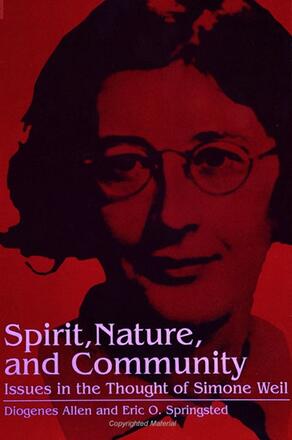
Spirit, Nature and Community
Issues in the Thought of Simone Weil
Alternative formats available from:
Description
This book covers the main aspects of Simone Weil's thought, drawing on her life where it is relevant for understanding her ideas. It is the fruit of many years engagement with scholars and scholarship on Weil in America, France, and the United Kingdom. The philosophical bases of her social and political thought, of her analysis of the natural world, and of her spiritual journey, as found in Plato, Epictetus, and Kant are uncovered.
The authors are especially concerned with controversial aspects of Weil's life and thought: they offer an additional dimension to her understanding of the supernatural; they correct Rowan Williams' misunderstanding of her account of preferential love; and argue against Thomas Nevin's attempt to marginalize her as another example of Jewish self-hatred. The book also presents and assesses the new evidence for Weil's baptism.
Diogenes Allen is Stuart Professor of Philosophy at Princeton Theological Seminary. Eric O. Springsted is Professor of Philosophy and Religion at Illinois College and is President of the Simone Weil Society.
Reviews
"This book is a valuable corrective to many of the more stereotypical readings of Simone Weil. The authors manage to situate Weil's work in a larger context and persuasively argue that her philosophical contributions anticipate and actually illuminate contemporary discussions regarding ethics, politics, and culture. By establishing the basis for a creative dialogue between Weil and contemporary figures such as Charles Taylor and Richard Rorty they have opened up new possibilities for appreciating what Weil can contribute to contemporary ethical, social, political, and cultural discussion. " — David Wisdo